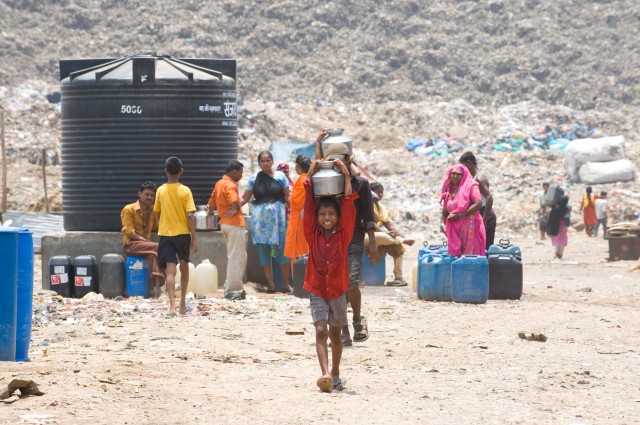You are here
To Fetch a Single Bucket of Water
The more I travel, especially in recent years, the more I see one issue challenging communities time and time again. Water. It’s an issue in so many ways. One, there is less and less of it. Temperatures are climbing, populations are exploding and water tables are dropping. It’s a recipe for disaster, particularly in Africa where every hardship is compounded by the poverty of the continent.

As water becomes more precious, its quality decreases. Or, more specifically, people’s willingness to use water for things like bathing and cleaning decreases in direct proportion to its availability. If you walked eight hours to fetch a single bucket of water, you wouldn’t likely waste it on washing the kids or cleaning the dishes. You’d drink it. And that spells trouble for many in the developing world, especially in the areas hardest hit by the effects of poverty and disease. When I moved back to the U.S. from Africa after living there for over six years, one of the first things I noticed was how much water we waste here.
We simply have no appreciation for how precious a resource it is. I see people washing their cars while the hose runs open in the gutter. Others shower for 10 or 15 minutes, or worse, take baths that require 10 times as much water. Having been to places like Sudan and Chad, where I saw women walking miles to fetch a single bucket of dirty water from a stream, I’ve taken that experience to heart. But availability is only one of the water threats we are facing on earth.
Spend any time in a refugee camp after an earthquake, a tsunami or a flood, and you’ll learn quickly that water is the first and most important need. Because when you crowd 20,000 people together, diseases like cholera are a real and present danger, and dirty water is the fastest way to spread them. When I was in India with the CDC Foundation, I spent time in the Shivaji Nagar slum – a sprawling settlement in Mumbai that is home to 500,000 people.
They have no clean water and depend entirely on what trucks deliver to nearby plastic tanks each day. Those who can’t afford the few cents per load to fill their buckets from that delivery depend on tap water, drawn through contaminated pipes. Many simply do not understand that waterborne diseases come directly from that source. Often those that do understand simply shrug. What choice do they have?
